Since dogs are very curious by nature, they like to sniff or lick everything. They are also not very picky when it comes to (unfamiliar) foods. Therefore, poisoning in dogs often occurs. Poisoning is when a poison causes clinical symptoms in an animal. Poison is a substance that has harmful effects on the body. Types of poisons that can poison an animal are:
-
Automotive materials (antifreeze, oil)
-
disinfectant
-
household chemicals
-
Insecticides (rat poison, mole poison)
-
insect bites
-
Medications (sedatives, NSAIDs)
-
pesticide (weed killer)
-
To paint
What are the causes of poisoning?
There are several situations in which a dog can suffer from poisoning. Think about:
-
Uncommon reactions: Hypersensitivity reactions (is actually an allergy)
-
accidents
-
carelessness
-
ignorance
-
Intentional poisoning
-
overdose
What are the symptoms of poisoning?
Symptoms that come on suddenly include lethargy, drooling, vomiting, tremors, skin spots, seizures, and difficulty breathing. Symptoms are highly dependent on the toxic substance ingested by the animal. A physical examination and an additional (laboratory) test can show whether poisoning is actually present. Specific toxins, their symptoms and treatment are discussed below. Sometimes treatment consists of giving an antidote. This is a substance that specifically counteracts the harmful effects of the poison.
Rat and mouse poison
Symptoms: Vomiting, blood clotting problems (from spot to massive bleeding).
Treatment: Vitamin K to restore blood clotting.
Antifreeze (ethylene glycol)
Symptoms: Gastrointestinal disorders, Pu/Pd (drinking a lot, urinating a lot), kidney problems, sometimes accompanied by neurological problems.
Treatment: alcohol (5 mg/kg) in an infusion with 1% sodium bicarbonate. Start treatment within 1 hour after poisoning, otherwise no effect. Possibly. Have alcohol registered by the owner. 1 glass of vodka/gin/10kg.
Aspirin/paracetamol poisoning
Symptoms: (blood) vomiting, lethargy, general malaise. Constipated due to lack of oxygen.
Treatment: Administer antidote: acetylcysteine.
Hashish (cannabis)
Symptoms: A wide variety of symptoms, ranging from lethargy to agitation, sometimes including drooling.
Treatment: Possibly. Fight saliva with atropine. Let the animal sleep! Possibly. supportive therapy, drip.
Snail poison (methaldehyde)
Symptoms: Neurological abnormalities: ataxia, muscle tremors, nystagmus, tonic spasms and seizures.
Treatment: No antidote. Supportive therapy: anticonvulsants. Possibly. Recording IC, prognosis reserved.
Chocolate
Poison dose dog 10 kg: 670 grams of milk chocolate. 63 grams of dark chocolate.
Symptoms: hyperactivity, gastrointestinal distress, agitation, clonic spasms, seizures, arrhythmia (sudden death).
Treatment: No antidote. supportive treatment.
Botulism
Symptoms: paralysis and decreased reflexes. From toxins produced in dead animals.
No antidote.
Treatment: Treatment depends on the symptoms. Moderate prognosis.
In certain situations it is useful to make the dog vomit, but in the case of poisoning by a corrosive or acidic substance this should not be done. It is also important that you do not induce vomiting in unconscious dogs. If the animal is unconscious, place it in a blanket with its head slightly lower than its body.
When should I take this to the vet?
Prevention is of course better than cure. When in doubt, it is always a good idea to call the vet to clarify what to do. Normally, you go to the vet as soon as possible to make the animal vomit or flush out the poison with a gastric lavage.
In addition, some types of poisoning, as described above, require special treatment or medication. Therefore, it is very important to always go to the vet if you suspect poisoning.
How is the diagnosis made?
In order to find out which and if the dog has ingested a toxin, it is important to take the packaging of the product that the dog (possibly) ingested. In addition, the veterinarian may perform additional tests to diagnose poisoning.
If you don't know, you can contact the National Poisons Information Center. Based on the data obtained, they make a probable diagnosis.
What's the prognosis?
The prognosis depends on the poison ingested. A poison that was eaten no more than an hour ago can still be made to vomit. The vet can give a subcutaneous injection of apomorphine. Vomiting should not be induced if:
-
It is not known what poison it is
-
The poison has a corrosive effect on the gastrointestinal tract
-
The animal is unconscious
-
The animal suffers from epileptiform seizures (aspiration pneumonia)
-
The poison was ingested more than 2 hours ago
-
Because of too much salt consumption
Gastric lavage is often used to prevent further ingestion of the poison. This also happens with unconscious or anesthetized animals. It is also possible that cabbage (Norit) is introduced into the stomach to absorb the remains of the poison.
How can it be prevented?
Unfortunately, poisoning cannot always be prevented; An accident occurs in a small corner. However, there are a number of measures that can be taken to reduce the risk. For example, it is important to keep cleaning supplies and other toxic substances in a place that the dog cannot reach.
It is also important to keep a close eye on the dog when you go for a walk and to make sure that it does not simply lick or eat anything.
In addition, it is important to carefully read the package inserts of medications, dietary supplements, etc. to avoid overdosing.
This text was translated by a translation machine
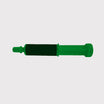 Horse Pharmacy
Horse Pharmacy Rugs
Rugs Care
Care Saddle and Attachments
Saddle and Attachments Leg Protection
Leg Protection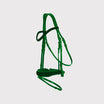 Bridles
Bridles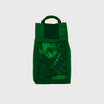 Feed
Feed Fly Masks
Fly Masks Saddle Pads
Saddle Pads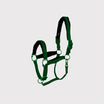 Headcollars and Ropes
Headcollars and Ropes Bits
Bits Other Disciplines
Other Disciplines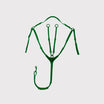 Reins and Auxiliary Reins
Reins and Auxiliary Reins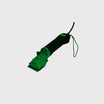 Clipping
Clipping Western
Western Eventing
Eventing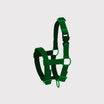 Foals
Foals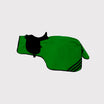 Reflection
Reflection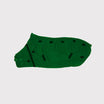 Therapy Products
Therapy Products Boots and Shoes
Boots and Shoes Breeches and Belts
Breeches and Belts Tops
Tops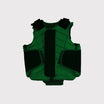 Safety
Safety Competition
Competition Heated Clothing
Heated Clothing Gloves
Gloves Socks
Socks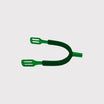 Spurs and Attachments
Spurs and Attachments Technology
Technology Whips
Whips Gifts
Gifts Casual Wear
Casual Wear Underwear
Underwear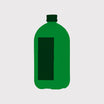 Rider Pharmacy
Rider Pharmacy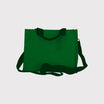 Bags
Bags Books
Books Laundry supplies
Laundry supplies Jewelry
Jewelry Feed and Waterbowls
Feed and Waterbowls Equipment
Equipment Tack Room
Tack Room Pest Control
Pest Control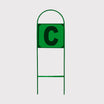 Arena
Arena Horse Toys
Horse Toys Wheelbarrows
Wheelbarrows Yard
Yard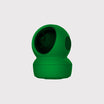 Surveillance
Surveillance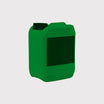 Disinfect
Disinfect Washing Area
Washing Area Lighting
Lighting Horse Pasture
Horse Pasture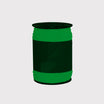 Current Conductors
Current Conductors Pole
Pole Insulators
Insulators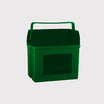 Energisers
Energisers Gate Handles
Gate Handles Batteries and Accumulator
Batteries and Accumulator Nets
Nets Grounding
Grounding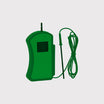 Tools
Tools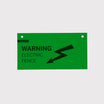 Fencing Security
Fencing Security Wolf Defense
Wolf Defense Fencing Sets
Fencing Sets Fence locks
Fence locks Dogs
Dogs Cats
Cats Rodents
Rodents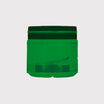 Dogs Pharmacy
Dogs Pharmacy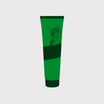 Cats Pharmacy
Cats Pharmacy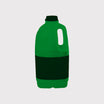 Rodents Pharmacy
Rodents Pharmacy Cattle Pharmacy
Cattle Pharmacy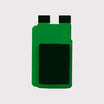 Poultry Pharmacy
Poultry Pharmacy Veterinary Supplies
Veterinary Supplies Cattle
Cattle Sheep and Goats
Sheep and Goats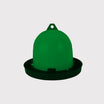 Poultry
Poultry Heat Lamps
Heat Lamps Calves
Calves Marking
Marking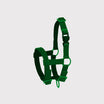 Halters
Halters